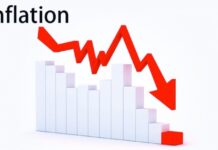
The Automobile Dealers Union of Ghana has indicated that the cost of imported used vehicles are likely to increase from this month onwards as a result of the revision made to the level of discount applied to the benchmark values for cars.
The revised benchmark value policy successfully commenced on March 1, 2022, with 10% discount on import vehicles and 30% discount on goods and services. Initially, a discount of 30% was applied on imported vehicles.
In an interview, General Secretary of the Automobile Dealers Union Ghana, Clifford Ansu, noted that their members will ensure they sell their imported vehicles at a profit.
“Customers in the system will pay for the price increase because nobody imports something to sell at a loss, we import to sell at a profit. The new revision will lead to cars that cost $20,000 costing about $23,000 which will affect the customers.”
“We are concerned about the possible price increases because if we import and they don’t buy, then we will incur losses. But what can we do? We can’t import and sell at a loss,” he added.
Meanwhile, reacting to the new discount figures, the President of the Ghana Union of Traders Association, Dr. Joseph Obeng described the new benchmark value discount rates as reasonable.
“It is a win-win situation for all of us, including our brothers from AGI. They have their bits, we have our bits, the consuming public have their bits and government can also shore up its revenue collection. We have to accept it and move on even though at the meeting people thought the discount on cars should be higher. But we understood we cannot have it all our way,” the GUTA President expressed.
He praised government’s all-encompassing approach to arrive at the new dispensation.
Dr. Obeng said, “government found it necessary that they suspend the benchmark reversal policy and give way for broader stakeholder engagement.”
The Association of Ghana Industries, represented by David Selorm Adikah, on the other hand, said the reviewed discount rates are unsatisfactory, leaving local industries gasping for survival.
“In the edible oil industry, at 50% discount, we went -13% below the imports, at 30%, its now -9.2%. We want a level playing field or an advantage over importation. This gradual change we are being asked to embrace, does not do much,” Mr. Adikah lamented.
He said the previous 50% discounts placed on the duties of imported goods, gave traders of such goods an unfair advantage, running local industries to the ground.





